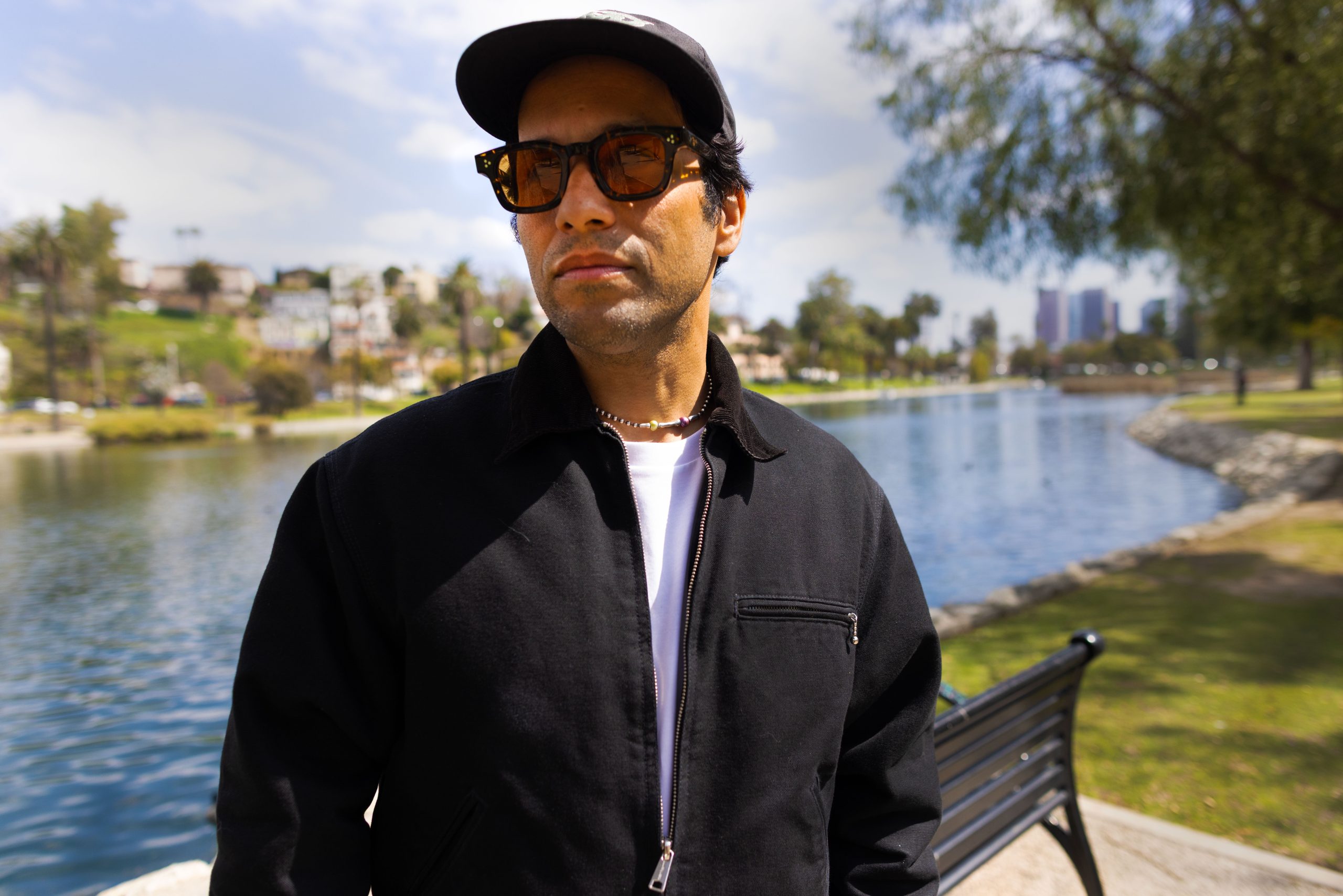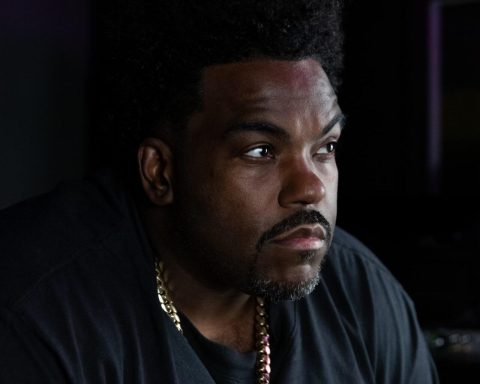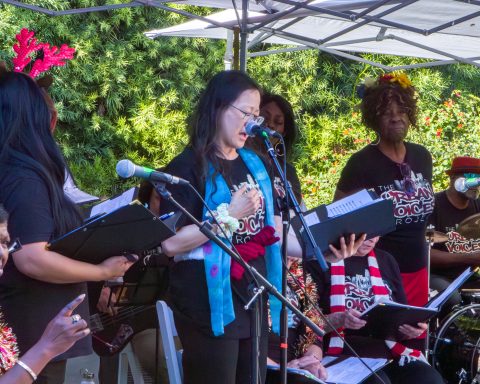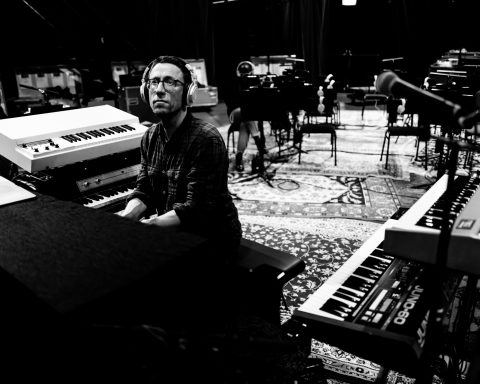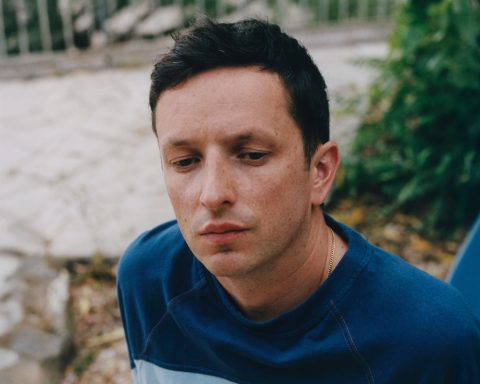Another Place is an apt title for the latest album by Pachyman. Born in Puerto Rico and based in Los Angeles, Pachy Garcia creates hypnotic tracks that take the listener along on a pilgrimage to an unusual space. The world of Pachyman is a place where traditional dub trails blend with esoteric influences like Yellow Magic Orchestra. Speaking from Echo Park Lake, Garcia reveals details of how he assembles futuristic musical magic using pieces of the past.
Mixture of Influences
Where did you grow up, and how did it influence you?
I was born and raised in Puerto Rico. My parents always listened to music, so I became interested in music from an early age. The first band I became obsessed with was Café Tacuba. I started playing guitar when I was young, but didn’t like it very much. Then, I started listening to electronic music and reggae. Reggae led me to psychedelic music, and I had a post-rock experimental instrumental band.
I went to university and studied piano, and I was in bands in Puerto Rico for about ten years. That was like my musical foundation. The scene in Puerto Rico was where I learned a musical vocabulary that made sense to me. Eventually, I wanted a change, and I moved to Los Angeles at about 26 years old. When I arrived here, it was like starting all over again from scratch. I completely lost my ego.
How did LA influence your music?
At that time, in Los Angeles, a lot of bands were playing psychedelic garage rock, and that’s what I got into. That’s when I started playing drums because I didn’t know any drummers at that time. Eventually, I became interested in producing and recording and re-discovering the old-school reggae sound like King Tubby.
Everything I learned in Puerto Rico—from playing in reggae, experimental, and ambient bands—plus what I learned in Los Angeles as a drummer, was the fundamental basis of Pachyman. The project is all drums and bass and classic, very minimalist. Little by little, I found my flavor and sound.
"Everything I learned in Puerto Rico—from playing in reggae, experimental, and ambient bands—plus what I learned in Los Angeles as a drummer, was the fundamental basis of Pachyman."
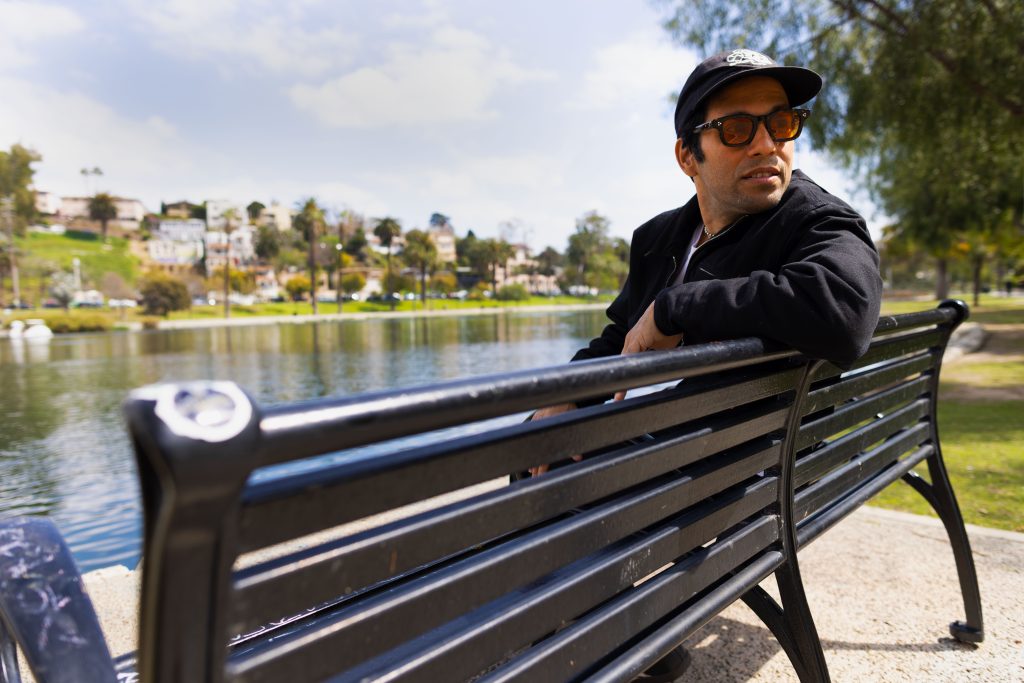
Dub Life
Do you remember the first reggae album you ever heard?
Cultura en Vivo by Cultura Profética. At that time, I was interested in reggae, but that record was still on the radio. There is a medley of songs on that record with a segment called “Tempestad Tranquila.” For me, that was like, “Oh, what is this?” That’s how it started.
Were there specific reggae instruments you liked?
At first, I was obsessed with the keyboard sound in reggae because it was analog and very raw. But from time to time, these bands would come along and throw in synthesizers, and I would always say, “Wow.” Obviously, after I started listening to reggae, I realized that the drums and bass are the heart of that music. The bass is the melody, which I eventually fell in love with.
How many instruments do you play?
I play drums, bass, keyboards, and a bit of guitar. I don’t play a lot of guitar, but I can skank. I studied keyboards, then eventually played or started playing bass as a second instrument, and learned to play the drums when I moved to Los Angeles. I toured for six years of my life as a drummer and singer.
Tell us about the process when you record.
It all starts with the drums. At first, I record drums and bass and then write to them, adding organ melodies or bits of piano. Eventually, I started buying more keyboards, writing more on the piano, and playing a bit of guitar as well. Everything varies.
I always record with a metronome to edit if there are moments I don’t like on the drums. Then I record the bass guitar, keyboard, and all that. In the end, I throw it into a tape machine and onto four channels. Then, I play back the tape, mix everything in a live take, and use delay and reverb.
"When I started the project, I didn't know it would become a live show. Since I come from a band background, I knew I had to do a lot of work to captivate people."
Taking It to the People
At your shows, you have a connection with people. Can you talk about that?
When I started the project, I didn’t know it would become a live show. Since I come from a band background, I knew I had to do a lot of work to captivate people. So, I actually started practicing and making sure I knew each section of all the songs perfectly. I got to a point where it was like, “OK, I know I can do this, but how can I captivate people?” How do I create a collective feeling more than me up here pushing buttons?
Sometimes, you bring in other players live. How is that different from your albums?
When I’m alone, it’s close to the records, but I try to improvise and create new arrangements. But when you have people playing with you, you have to commit more to the fact that it will sound a little different. It helps a lot when people are onstage because the audience has more people to watch. It’s not me all the time.
It’s a learning process, letting go of how things work out, my expectations and wanting things to sound a certain way, and letting other people take their parts and add their flavor. I’m a control freak, but there’s a time when you have to leave everything and let people do their magic, too.
Have you recorded with others on your albums?
It has never been a passion. It’s always just me recording everything. I’ve had moments with other collaborators, people who come to sing, or a friend who plays trombone occasionally. But most of the records are all me.
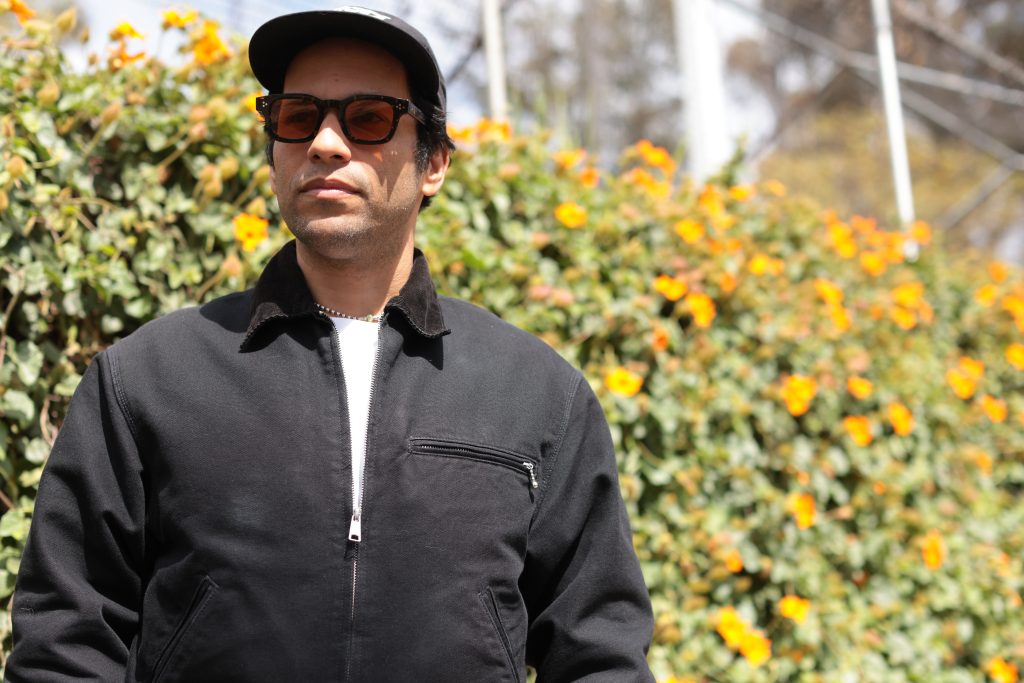
"It's a learning process, letting go of how things work out, my expectations and wanting things to sound a certain way, and letting other people take their parts and add their flavor."
On the Road
Tell us about your touring itinerary.
Well, I’ve been to a lot of places. I’ve been on tour for three and a half years now. I just returned from Australia and New Zealand and spent three weeks there playing my own show. I go to Europe in May with a quartet. I will play drums and sing, and I have a keyboard player, drummer, bass player, and guitarist. After that, I will tour the United States. This summer, I will be traveling a lot.
How do you prepare to go on the road?
A lot of practice. Since I’m singing a little more now, it’s about practicing the singing parts by mixing live and singing at the same time. When on tour, I try to write, to have things to listen to, and find new moments when I come back. I want to try to keep up a consistent release of albums.
What’s it like playing in Puerto Rico?
I tour around the world, and now I’m really relaxed about that. But when you go to your country, the place that raised you, I get super nervous. It’s like I care about what people think, and I want them to like it.
"I tour around the world, and now I’m really relaxed about that. But when you go to your country, the place that raised you, I get
super nervous."
Love Letter to a Place
LA is your home, and after recent fires, you created the video for “Hard to Part” as a message of support to the city.
We were supposed to deliver a music video the same week the fires started in Los Angeles, and we had an emergency meeting about what to do. So many people were losing everything. We decided to change direction and make a video about what’s happening in the city, paying homage to the city.
We decided to make a very simple music video with very little equipment. We made a love letter that basically went to places that were important to the city or to me personally. We did 19 locations in one day. It was a moment of community during everything that was going on.
How did you come up with the name Another Place?
When I finished a demo of one of the last songs, I understood it was a new direction. This was my moment to find out who was behind this project and how I was contributing to all the reggae influences that were important to me, turning them into something new and personal. The album goes from reggae to fusion to post-punk. It made sense to call the record Another Place because I’m in another place with this.
Extension of the Soul
You use the Roland VK-09, correct?
Someone lent me a Roland VK-09 to play in a reggae band, and I realized that if you put different pedals and effects on it, you can make it sound like something you’ve never heard. That organ has been very important to me. I also use a lot of Roland SH-01, my favorite synth. I became interested in that synthesizer because I’m a super fan of Boards Of Canada. They bring out these incredible textures on their records, which were important for my fundamental musical growth.
"I know exactly how much I have to push this button to give it feedback without affecting the mix and exploding anyone's ears. The RE-20 is definitely an extension of my soul. "
You call the BOSS RE-20 the extension of your arm and your soul.
Since my first band, I’ve used the BOSS RE-20 in all my projects. If I play guitar, I always go for Space Echo. I love how it sounds; it has a particular texture. I know exactly how much I have to push this button to give it feedback without affecting the mix and exploding anyone’s ears. It’s definitely an extension of my soul.
How long did it take you to discover the perfect combination of instruments?
It took me 25 years. Little by little. I’ve been learning things here and there and collecting certain types of microphones. I think the Space Echo is the oldest thing I have. I’ve had it for about 20 years. I can’t live without it.
